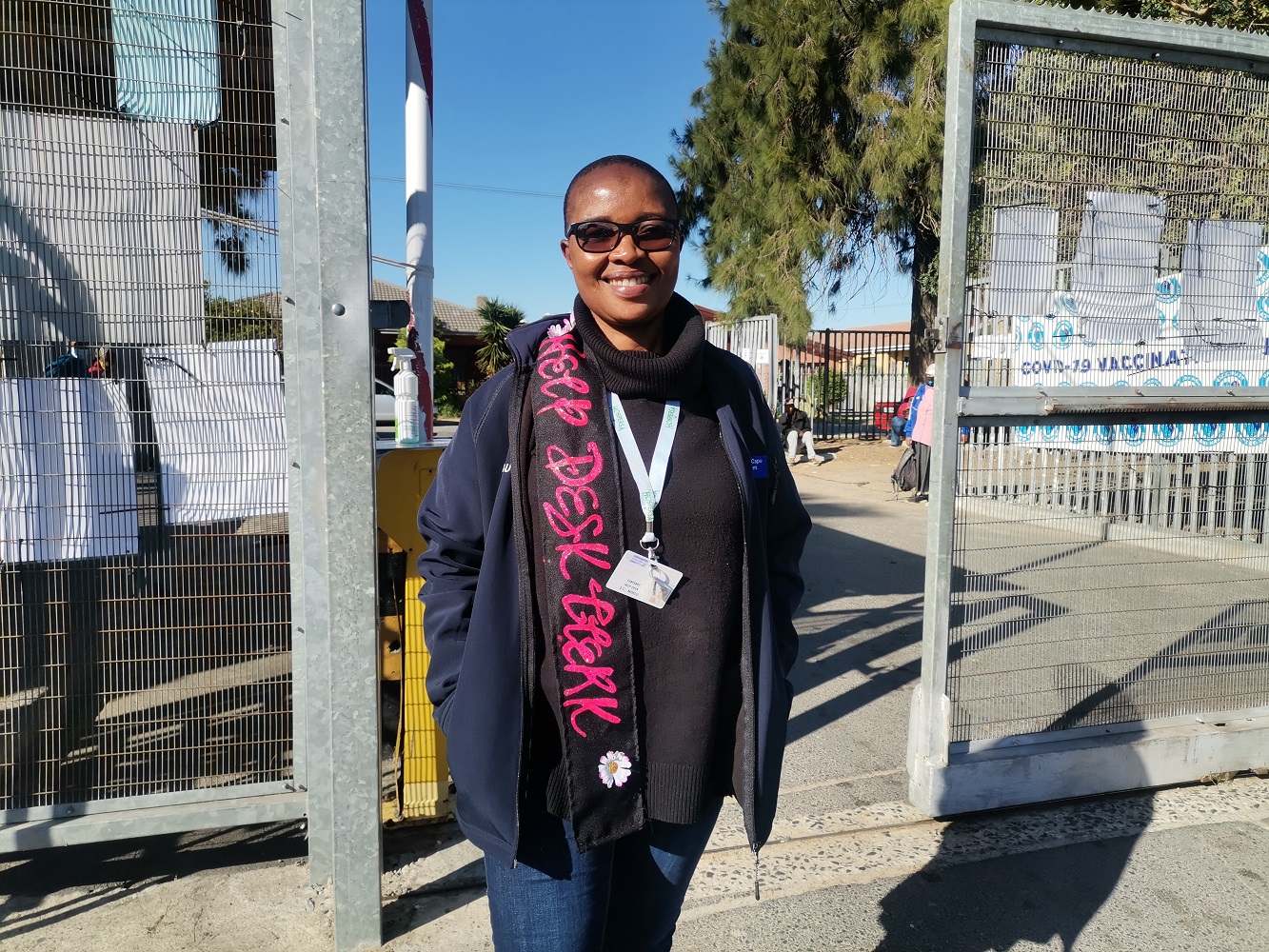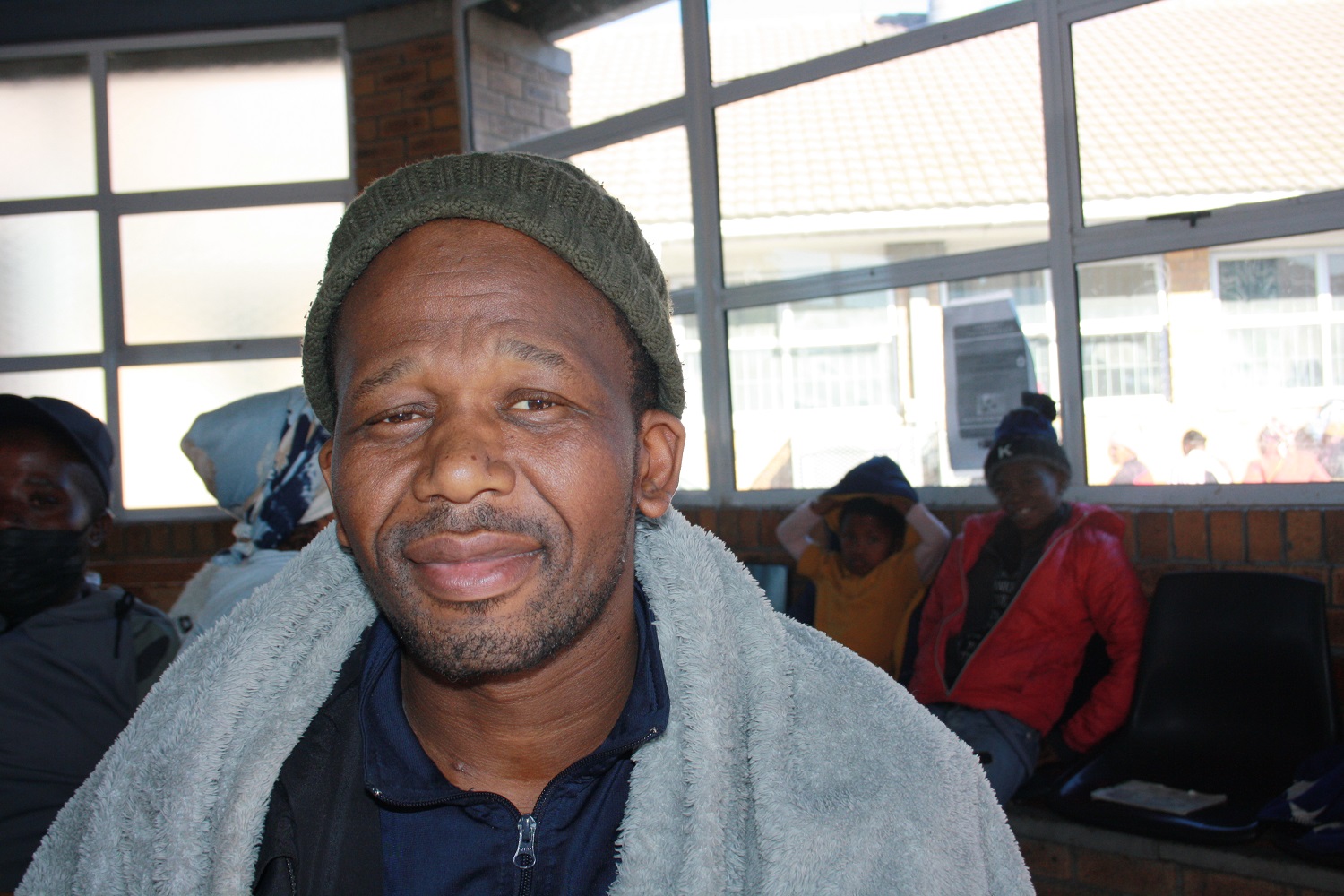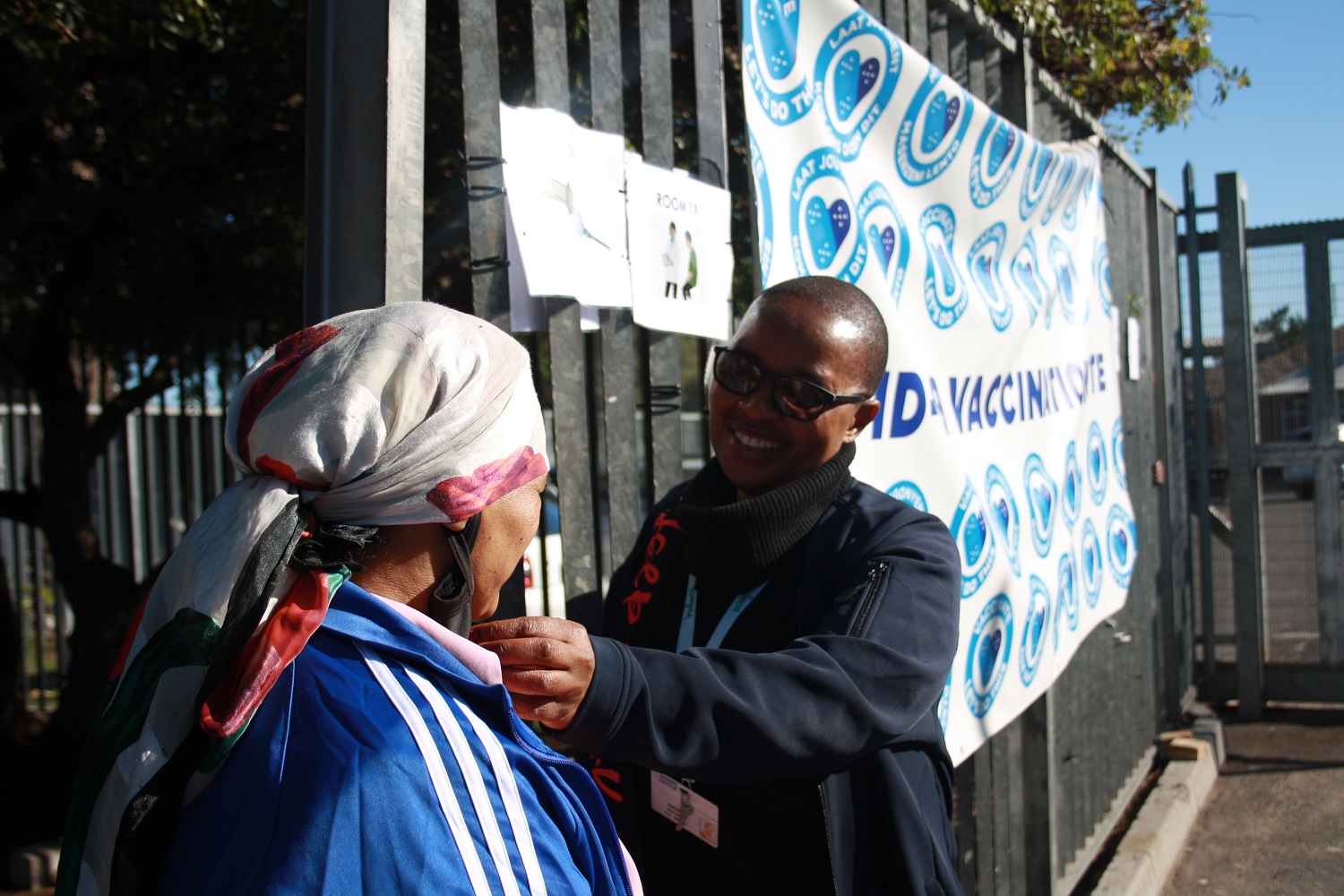
News
Kraaifontein Community Health Centre’s help desk makes a difference
Reducing waiting times at a hospital can be complex, but the Kraaifontein Community Health Centre is taking steps to improve their system.
At least 17,000 residents seek support at the primary healthcare facility every month. The facility’s team is taking on long queues and has assigned a help desk champion, who engages directly with patients at the facility’s gates.
Kraaifontein CHC facility manager, Mr Sindiso Tutu, says the help desk and help desk champion have reduced the waiting time for patients queuing outside the facility.
“We are now able to quickly identify the vulnerable patients and fast track them as per policy, these patients include the elderly, frail patients etc. It reduces waiting time as the patient flow is managed actively by someone who can direct patients to the relevant service points.”
Mr Tutu shares that his healthcare team aims to improve residents’ experiences when they visit the community healthcare centre.
“The patient flow is improved and ultimately this has led to a decrease in complaints, unlike before, as patients were complaining of being turned away by the security. This ultimately leads to improved patient experiences.”
The help desk is managed by Zinhle Ndelu. Anyone who knows Zinhle is aware that she is passionate about healthcare and is focused on helping others. It is no surprise that Zinhle was appointed as the help desk champion.
Zinhle’s role as the help desk champion has become key as she shortens queues, helps patients to navigate the healthcare centre and has become the link between healthcare workers and the community.
“My day starts at 7am outside of the facility. By the time I get to the gate, there are many patients queueing. Some patients arrive for appointments, others may not have appointments but need help. If there are frail or elderly patients, I ensure that they get a seat inside the waiting room and alert staff to those who have life-threatening conditions to get help immediately,” Zinhle shares.
Zinhle, with the support from an administrative team member, splits the queues to ensure the designated healthcare team can support residents.
“We have residents who visit the facility to collect their medication as well. When we had restrictions in place due to COVID-19, our pharmacy came out to assist residents to ensure that they don’t need to wait outside facility for their medication. Today, we’re still doing our best to shorten queues and to improve service delivery for residents in our community.”
Thembela Njovane visited the Kraaifontein CHC to access healthcare. Thembela, who lives with kidney disease, required a referral form for dialysis treatment. Thembela has praised Zinhle and the Kraaifontein CHC team for their service and the help desk initiative.
“She’s really good and kind to all of us. I am very impressed by Zinhle and the service here. I have kidney problems and I had to pay a private doctor at first close to R2,000. Now I can get the service for free and staff are very helpful. She (Zinhle) took me out of the queue, and I get to sit down while I wait for the doctor. I know that we all have complaints, and some people may not be happy but we should be grateful for the good service and help from staff.”
Zinhle adds that the help desk was moved from inside the facility to the gates, where she can easily assist residents. While the issue long wait times has been plaguing health facilities, the Kraaifontein CHC is committed to solving the “wait problem”.
The facility has urged residents to make use of other time-saving services, such as the e-locker service. The Collect & Go E-Lockers are medicine dispensing units which will allow patients to collect their monthly medicine. The e-lockers have been launched as a pilot project at 11 healthcare facilities, including Elsies River CHC, Kraaifontein CHC AND Delft CHC. The e-locker consists of a console unit with pigeonholes (like a Post Office box) to load and unload medicine parcels. Patients receive an SMS notification with a one-time PIN to collect medicine at the patient collecting unit (e-locker). Using the touch screen interface, patients will enter their one-time PIN code and the specific locker door opens. The patient can then collect their medicines safely and securely after hours, and won’t need to queue or wait to use the service.







